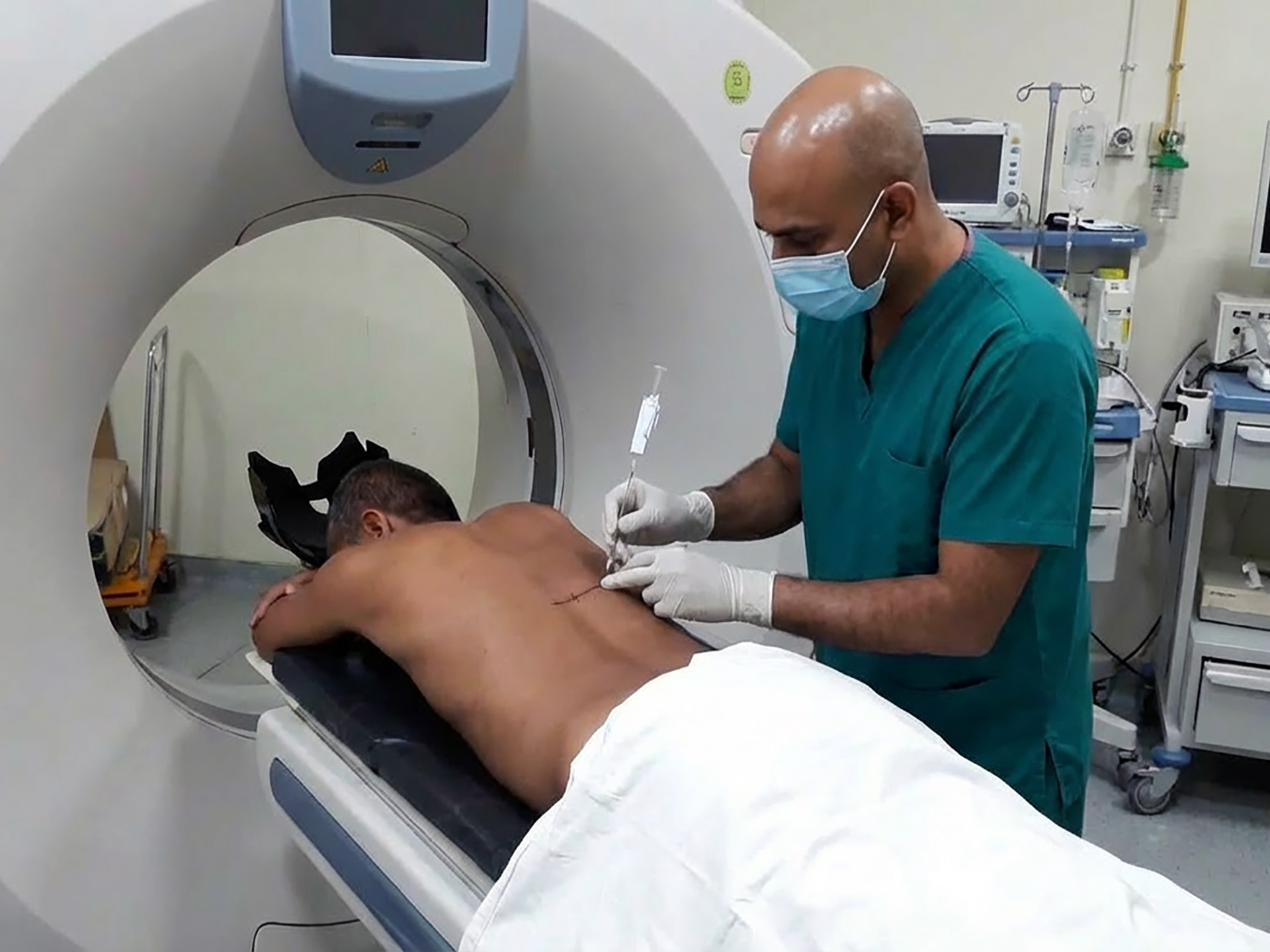
Lung cancer is the leading cause of cancer-related deaths globally and the third most common form of cancer for men and women in Singapore. What is more startling is that 48 percent of non-small-cell lung cancer patients in Singapore were never smokers. Despite modern-day advances, by the time lung cancer signs and symptoms develop, the disease has usually progressed too far for curative treatments to be effective.
It was previously believed that all lung cancers were restricted to smokers. However, we know now that a large percentage of lung cancers are present in individuals who were never smokers. The majority of the lung cancers identified today are non-small cell lung cancers, and the common subtype is adenocarcinomas, which are present in both smokers and non-smokers.
Yet, despite the increasing prevalence of lung cancer, routine screenings are still uncommon for non-smoker populations.
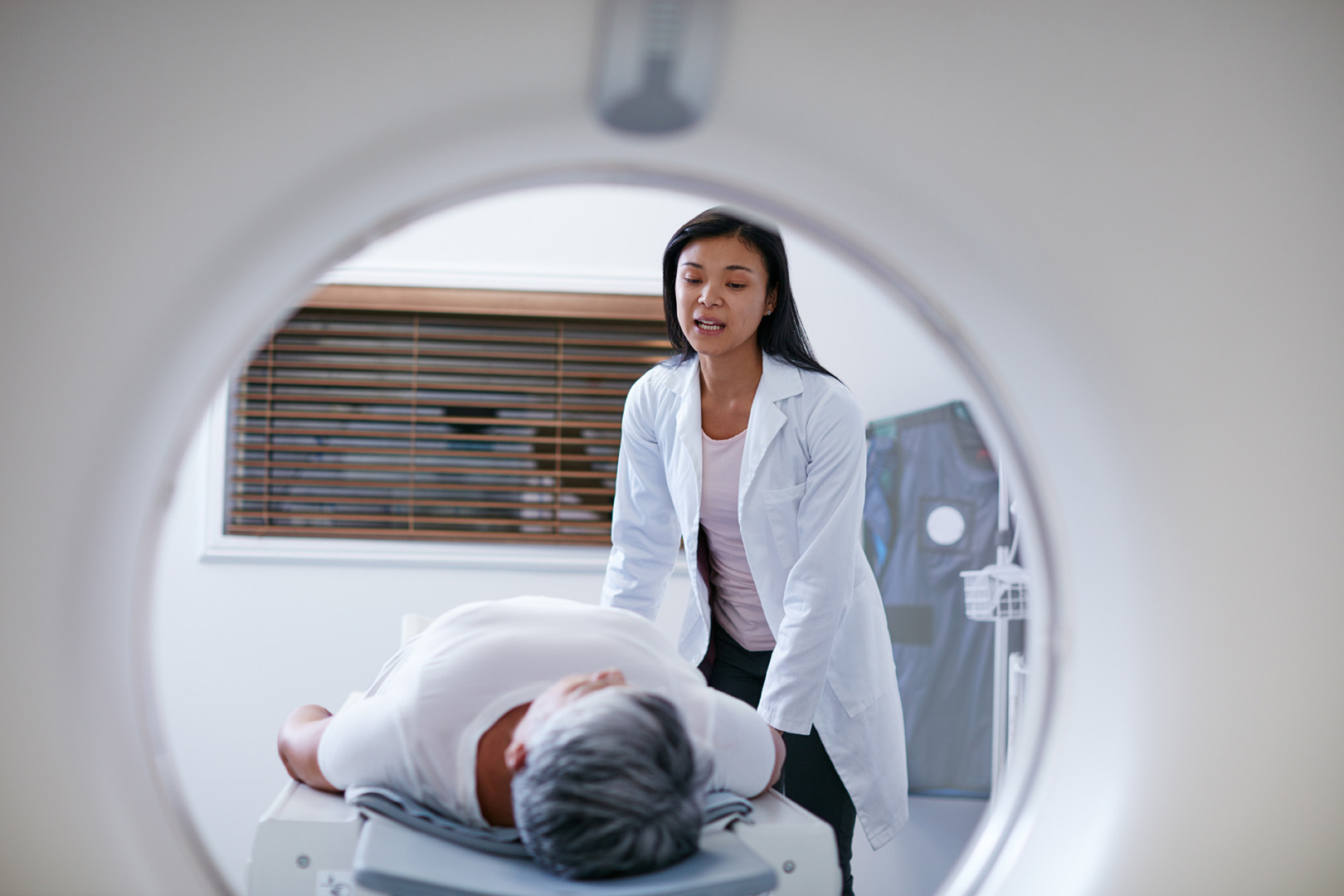
Despite the known benefits, lung cancer screening remains too low, with a significant proportion of individuals who meet screening criteria failing to undergo the simple procedure. This is concerning, given the potential for early detection to improve prognosis and increase the chances of survival. Early detection through CT low-dose lung screening is crucial for identifying lung diseases and abnormalities in specific regions of the body before symptoms become severe.
CT scans in Singapore are essential diagnostic tools in the early detection of lung cancer and other conditions. A lung CT scan is a specialised imaging test used to produce detailed internal images of the body, helping doctors diagnose a wide range of diseases. When compared to traditional X-rays, CT scans utilise advanced X-ray equipment to provide more comprehensive images. Regular lung cancer screenings are especially valuable for high-risk individuals, as they can lead to earlier diagnosis and better treatment outcomes.
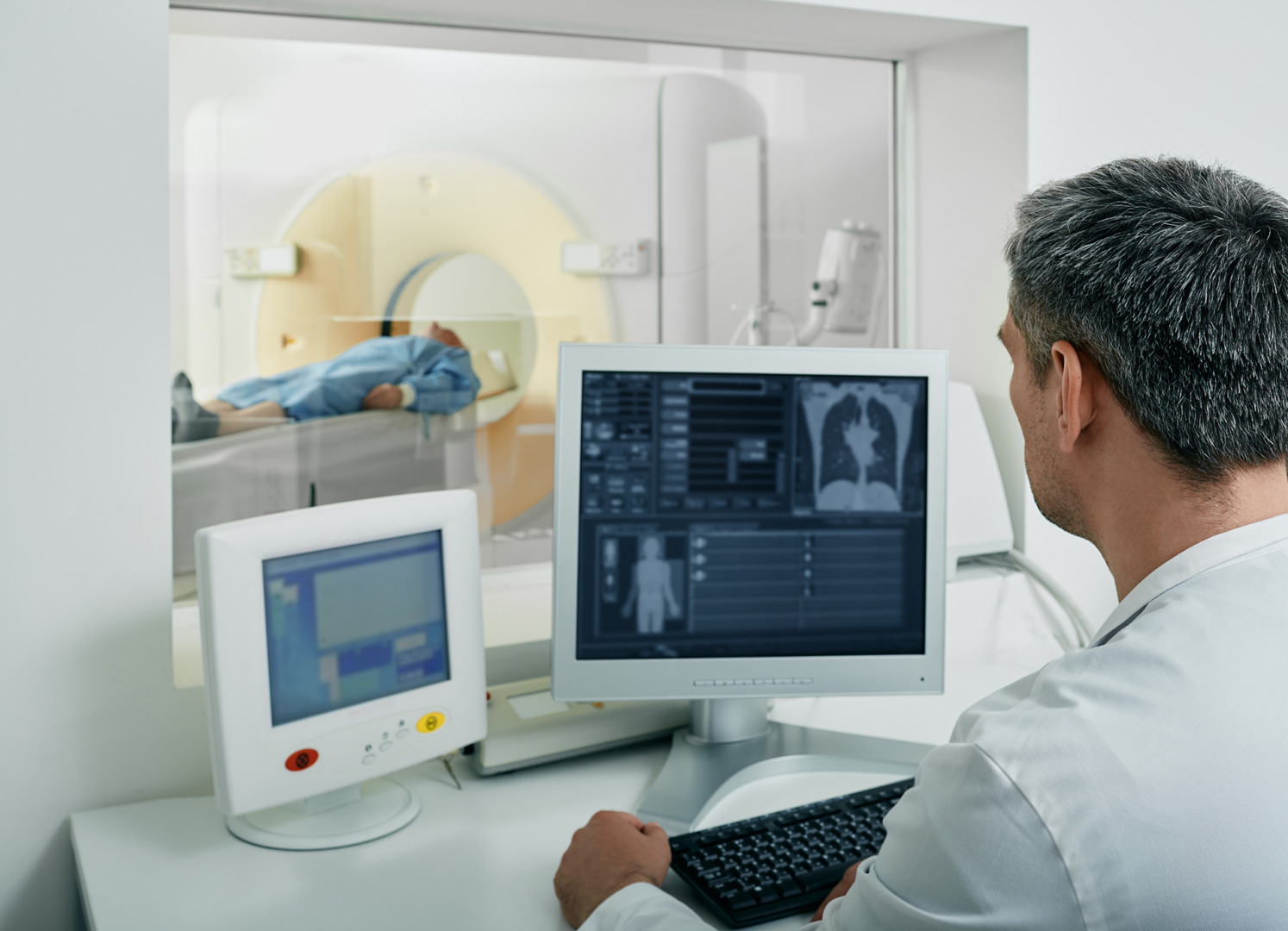
Advances in the field, including the development of new therapeutic options, have made it increasingly possible for individuals diagnosed with lung cancer to achieve long-term remission or even a cure. Therefore, early lung cancer screening is of great importance, as it allows for detecting the disease in its early stages when it is more likely to be treatable. CT scans are also used to detect other lung diseases such as pneumonia, pulmonary fibrosis, and tuberculosis, as well as to evaluate blood vessels for abnormalities like aneurysms or clots.
Several screening tests, including low-dose computed tomography, chest X-ray and sputum cytology, can detect lung cancer in its early stages. These tests are used to identify tumours, infections and other abnormalities of the body. A lung CT scan is the most sensitive and specific thorax screening test for lung cancer and is recommended for individuals at high risk due to their smoking history or other risk factors. CT scans of the chest focus on detecting lung issues and can help diagnose the underlying causes of chest symptoms, such as cough, shortness of breath, or chest pain. The procedure is painless and requires no special preparation.
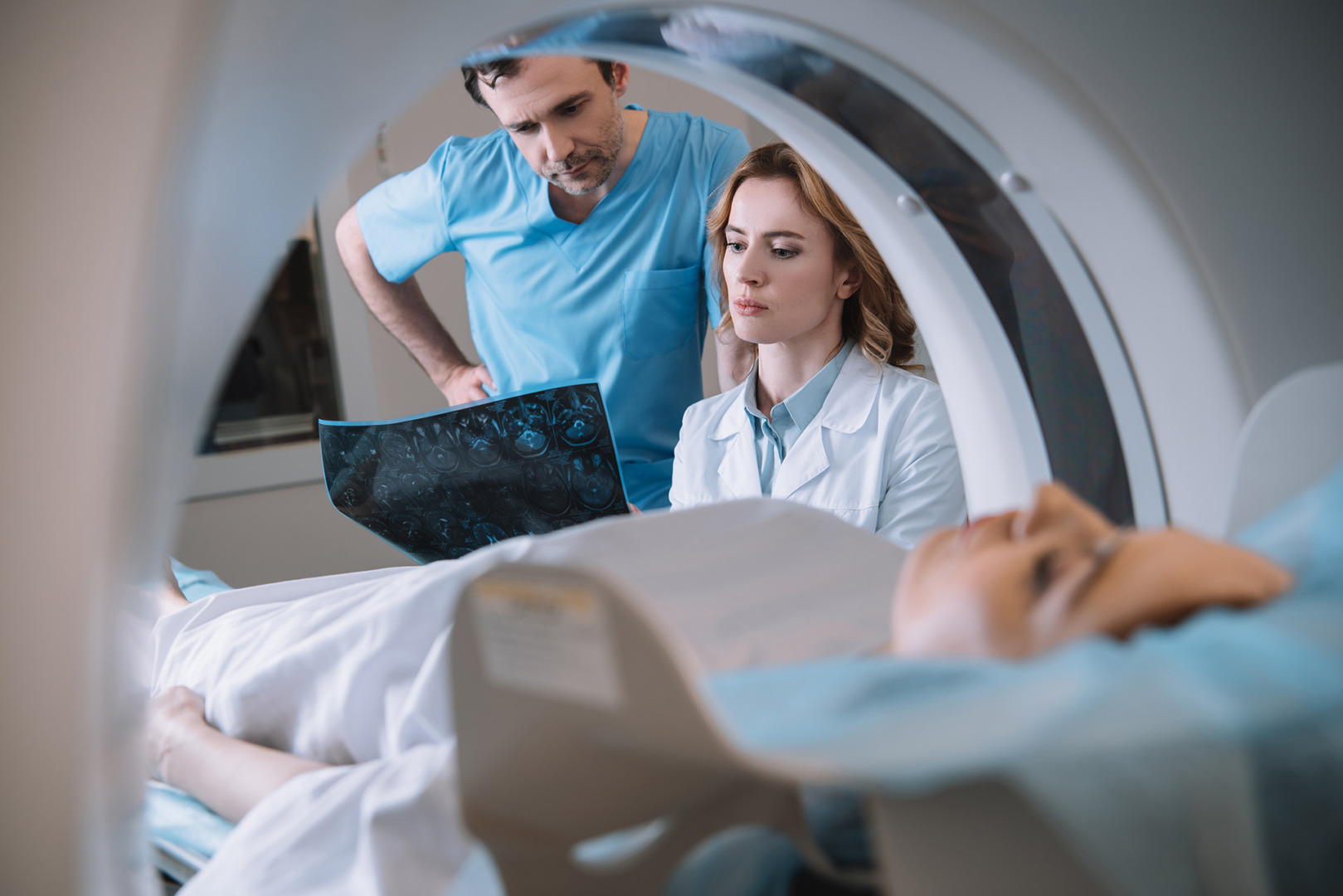
CT scans provide detailed images of the body, including bones, organs, soft tissues and blood vessels, allowing for comprehensive evaluation of the body’s internal structures. This capability makes CT lung screening invaluable for diagnosing a diverse range of conditions throughout the body.
How do you interpret your screening results and determine the next steps to take? It is important to consult your healthcare provider for guidance on follow-up exams or further evaluation.
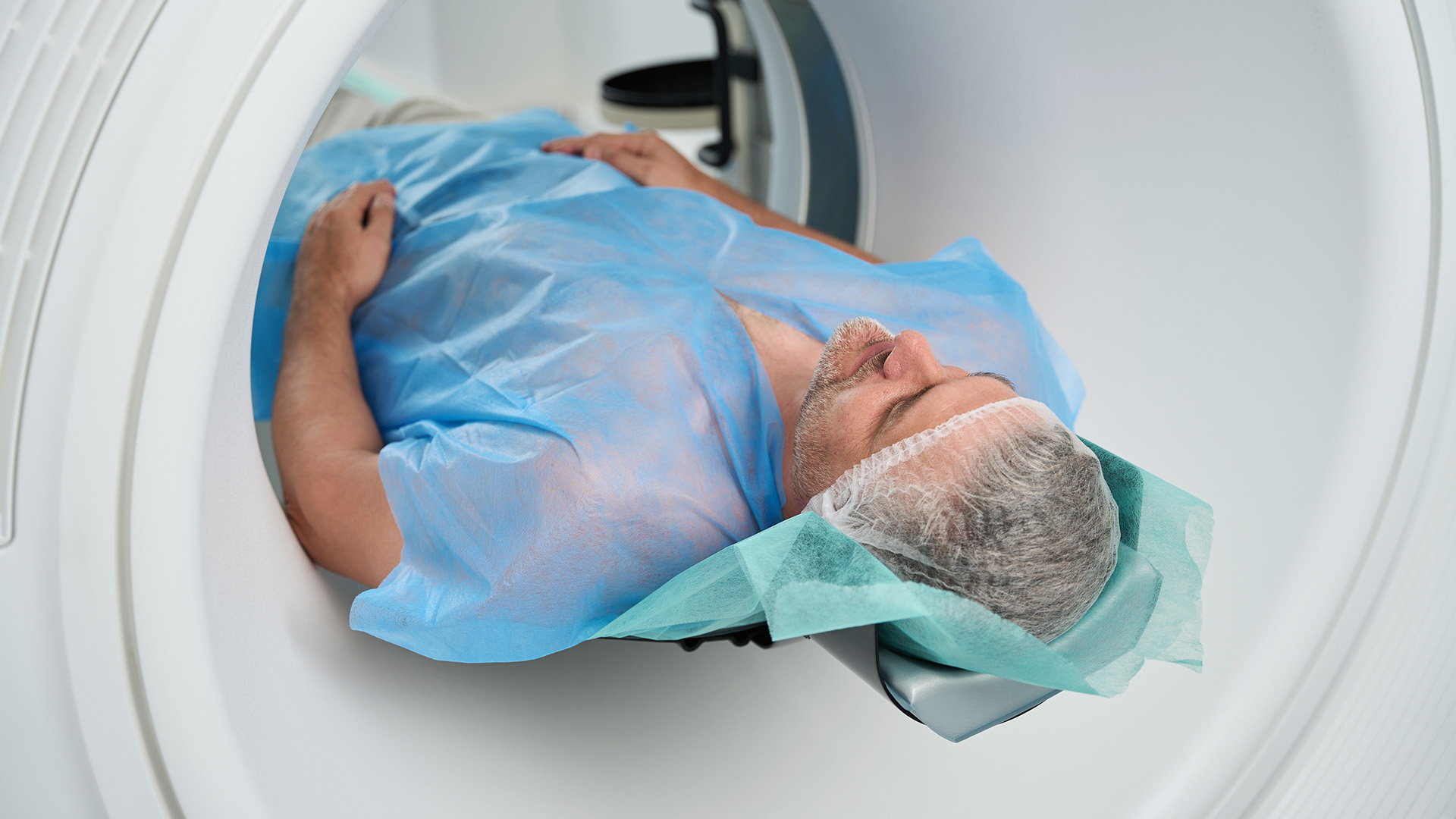
As there are no symptoms of lung cancer in its early stages, lung screening to detect any abnormalities is essential for everyone.
The Neumark Lung Screening Programme offers a range of lung check-ups, screenings, and diagnostic tests to detect various types of cancer, including lung cancer.
At the core of Neumark’s comprehensive screening programme is a 10-minute low-dose computed tomography (CT) imaging exam, cardiopulmonary exercise testing and pulmonary functional test, followed by a thorough review of your results with our thoracic surgeons, who are specialists in lung conditions.
The screening tool is highly effective at identifying abnormalities in the lungs that may be indicative of cancer:
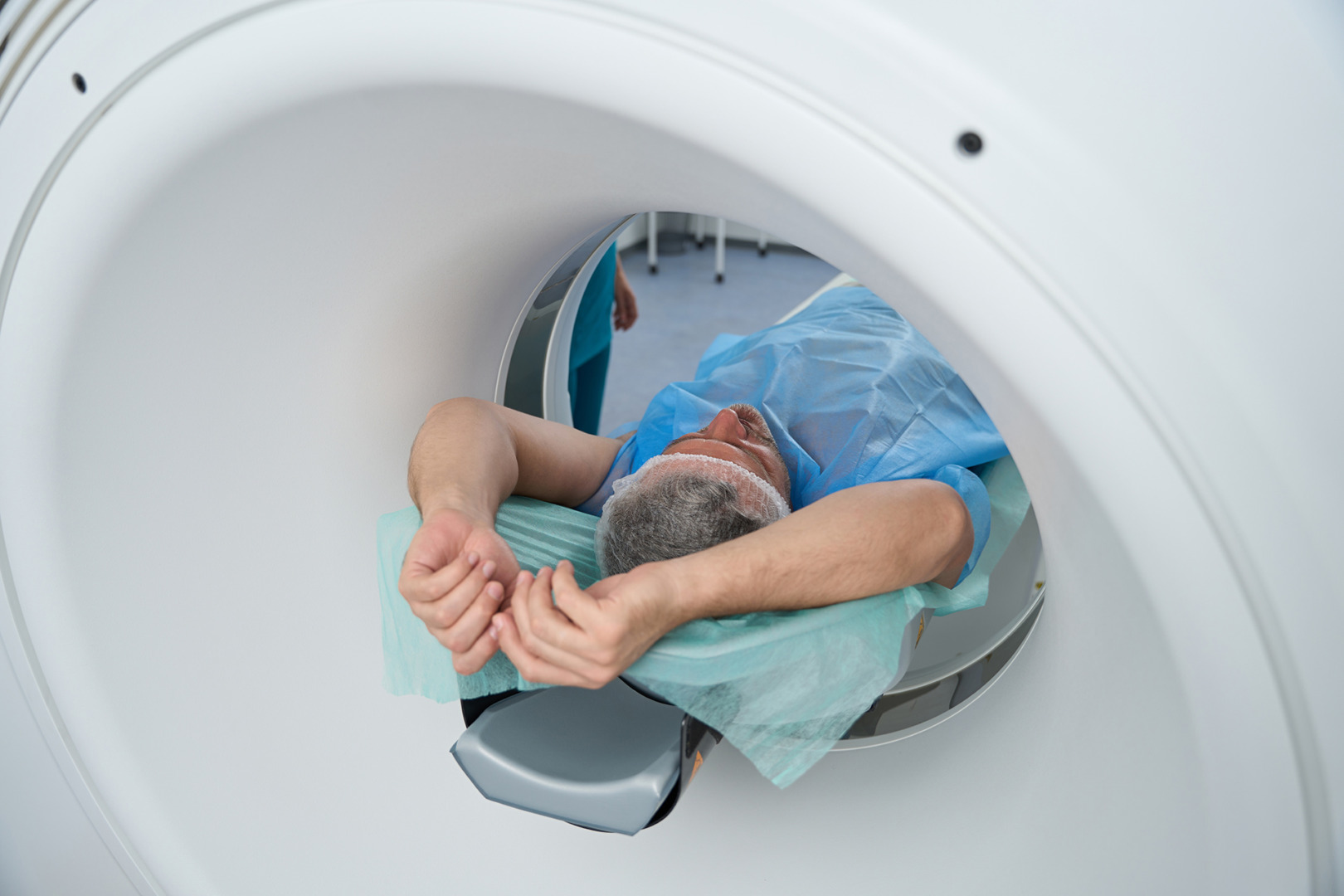
Cardiopulmonary Exercise Testing (CPET) is a vital assessment tool for thoracic surgeons to evaluate a patient’s heart and lung function during exercise, ensuring optimal surgical readiness and personalised treatment plans for improved health outcomes.
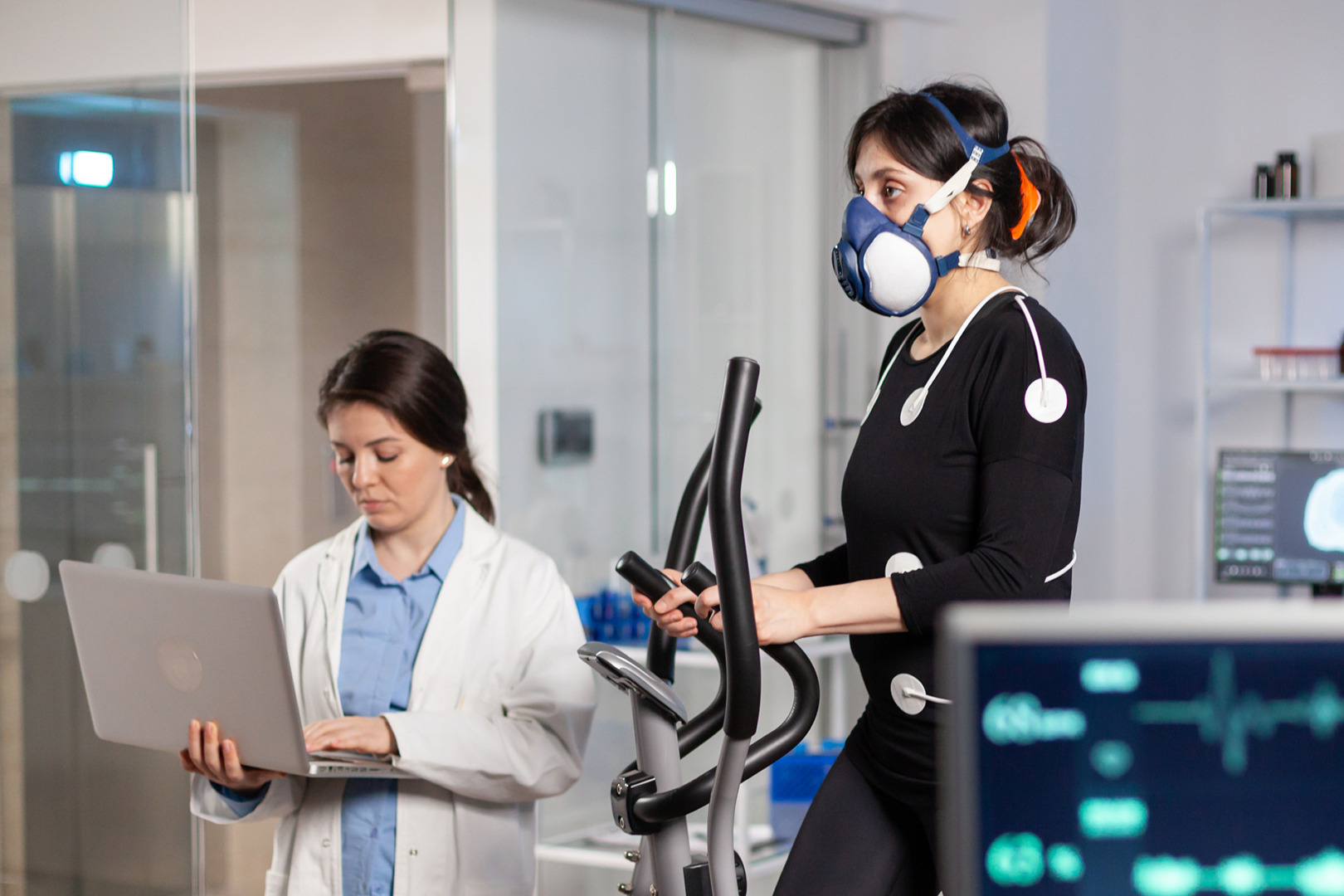
Pulmonary Function Tests (PFTs) are comprehensive assessments that measure lung capacity and efficiency, enabling healthcare professionals to diagnose respiratory conditions, evaluate treatment effectiveness and plan appropriate surgical interventions.
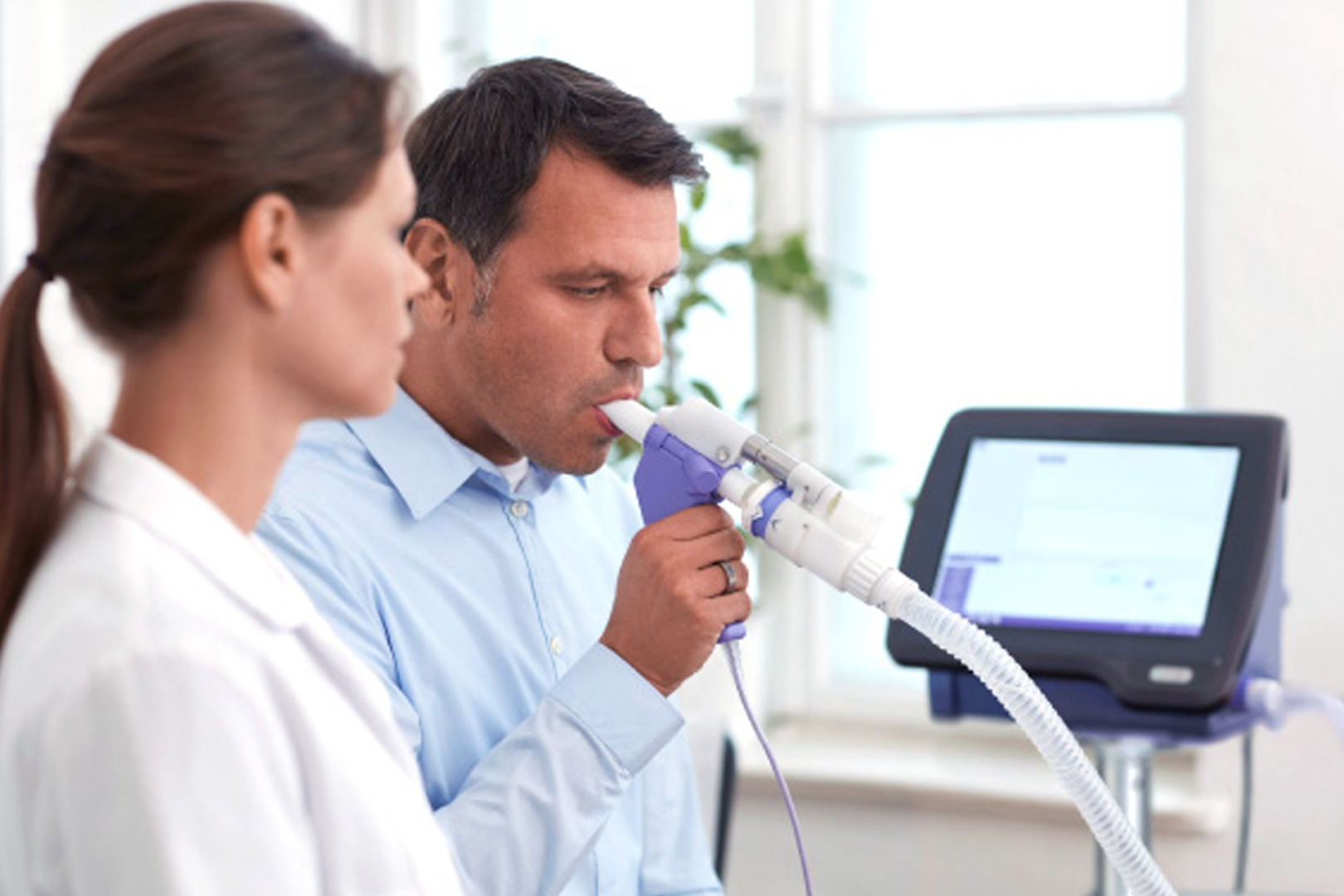
At Neumark Lung & Chest Surgery Centre, we provide all the necessary care and attention for our Neumark Lung Screening Programme:

Lung cancer screening tests can help identify potential disease growth and allow Neumark surgeons to remove suspicious tissue during the screening process if abnormalities are found. This can reduce the likelihood of developing recurring cancer in the future. In some cases, the screening test may require additional follow-up testing. Regular cancer screening provides the most significant protective benefit.
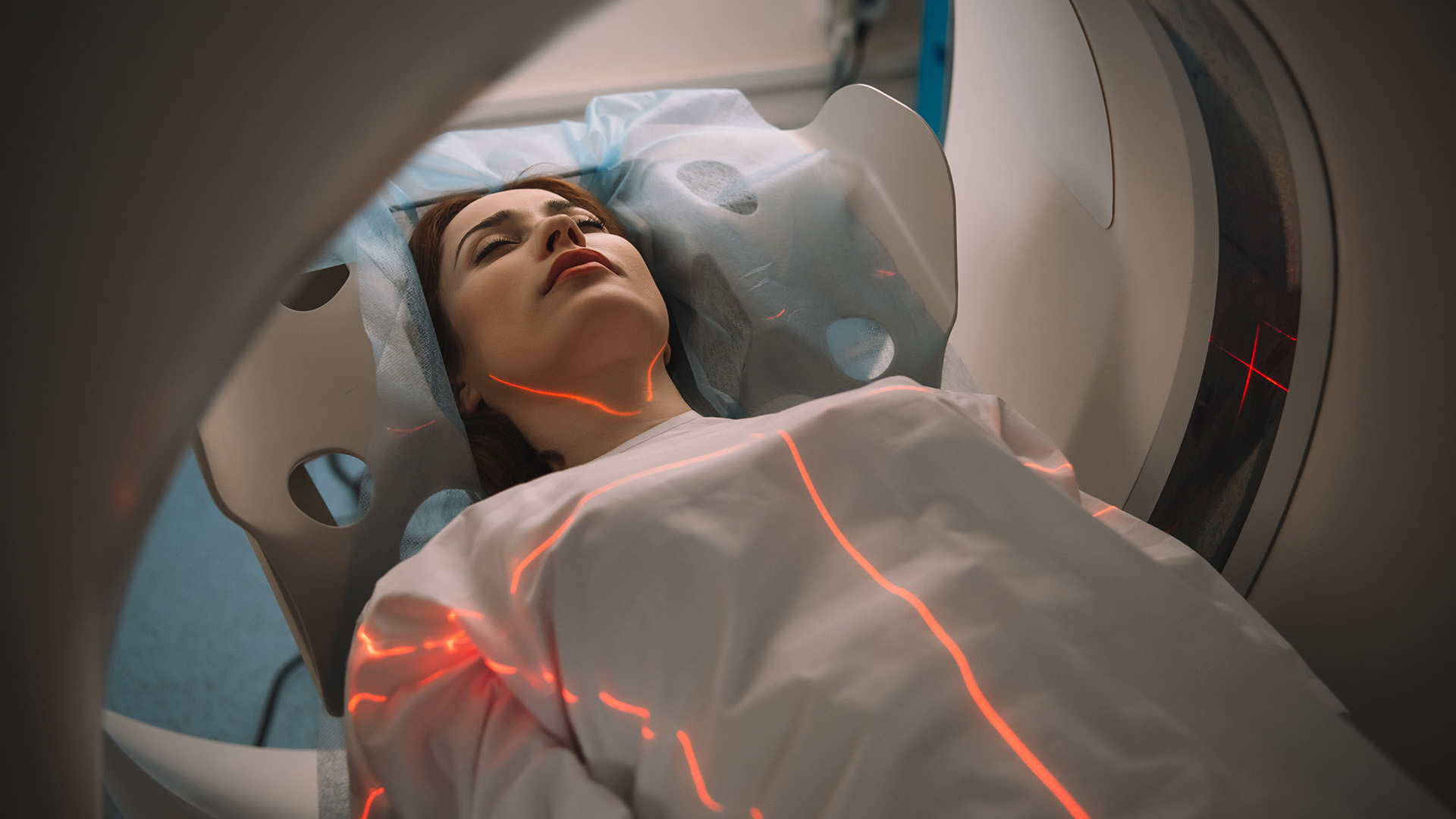
Low-dose computed tomography (LDCT) lung cancer screening is a relatively new medical imaging modality that has been developed to enable the early detection of lung cancer in high-risk individuals and the general population.
A low-dose CT scan for lung cancer is a noninvasive medical test that uses specialised technology that continuously rotates in a spiral motion to take multiple three-dimensional X-ray images, producing detailed images of the inside of the lungs. These highly detailed images can reveal early-stage lung nodules that may not be detectable by traditional X-ray.
The identification of smaller tumours early through a lung cancer CT scan significantly increases the likelihood of diagnosis before the cancer has had an opportunity to metastasise. This opens up treatment options and improves survival outcomes.
This CT chest scan is quick and painless. It takes only 10-15 minutes, and no injections, dyes, or oral pills are required. The screening is performed at Gleneagles Medical Centre in Singapore or an affiliated outpatient imaging centre.
The low-dose CT lung screening will be sent to Neumark’s thoracic surgeons, who will thoroughly review your test results with you. It is important to note that low-dose CT screening does not definitively diagnose lung cancer but rather shows abnormalities or signs of lung cancer as an early detection tool. If your test results show abnormalities, further testing or treatment may be necessary to confirm the diagnosis.
Preparing for a lung check-up is an essential step in ensuring that your CT low-dose lung screening is as accurate and effective as possible. Your doctor or the imaging centre will provide you with specific instructions tailored to your individual needs and the type of scan you are having. For most low-dose CT scans used in lung cancer screening, preparation is straightforward. However, there are a few key points to consider.
If your CT chest scan requires the use of contrast dye, you may be asked to fast for several hours before the procedure – typically between 4 and 6 hours. It’s important to inform your doctor about any medications you are currently taking, as well as any allergies, especially to iodine or contrast materials. If you have a history of kidney problems, diabetes or other medical conditions, please inform your doctor, as these may affect the safety and approach of the scan. In some cases, your doctor may prescribe medication to reduce the risk of an allergic reaction to the contrast dye.
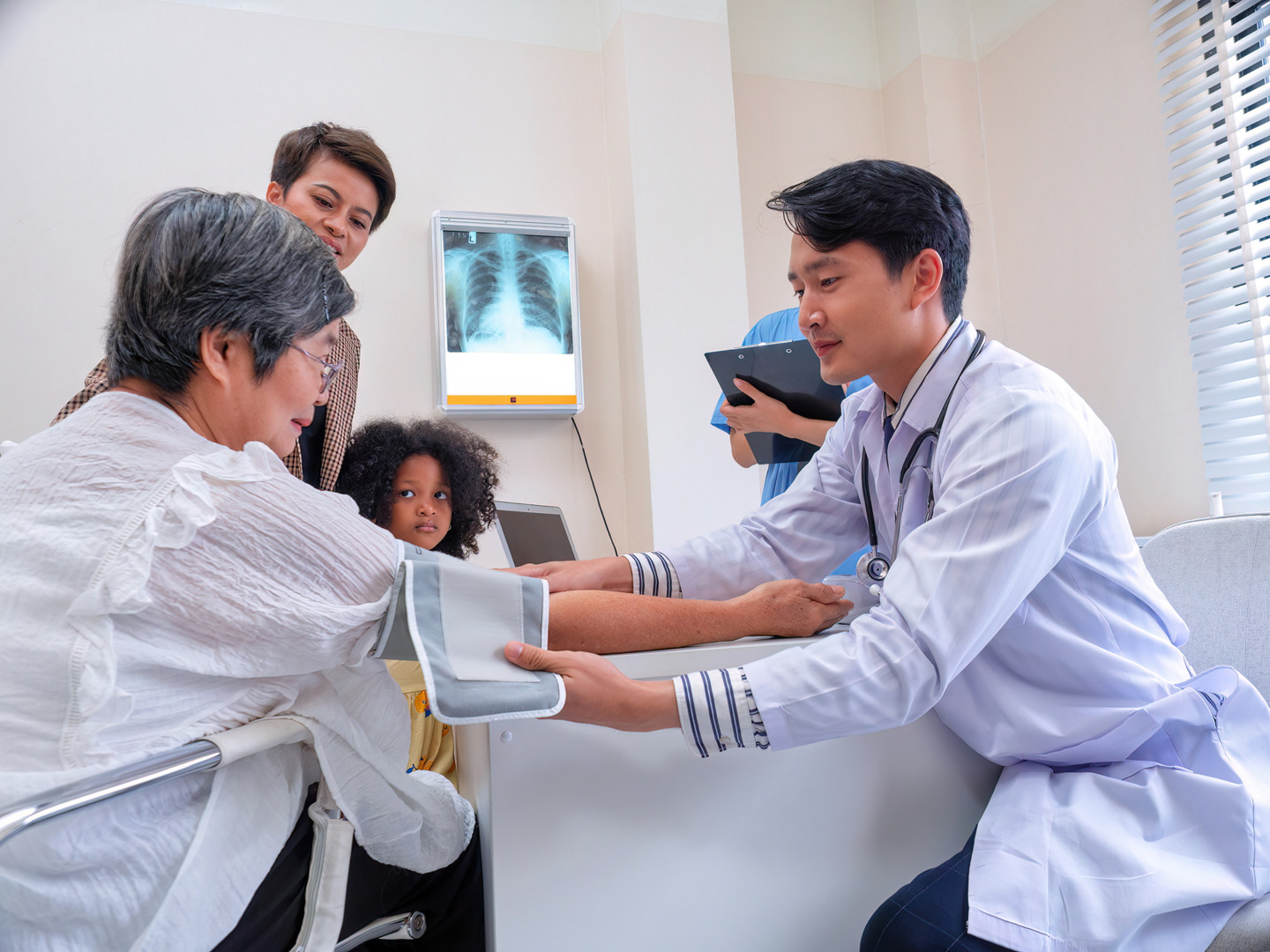
Before the lung cancer scan, you may be asked to remove any metal objects, such as jewellery, eyeglasses or clothing with metal fasteners, since these can interfere with the quality of the CT scan images. You will likely be given a gown to wear during the procedure. If you are pregnant or think you might be, it’s essential to inform your doctor, as this may influence the decision to proceed with the scan, or the use of contrast dye.
On the day of your CT scan for lung cancer, you will lie on your back on a table that slides into the CT scanner, a large, doughnut-shaped machine. The scan is quick and painless, usually taking less than 15 minutes. During the scan, you may be asked to hold your breath for a few seconds to help produce clear, detailed images of your lungs. The technologist operating the CT scanner from a separate room will be able to see, hear and communicate with you throughout the procedure.
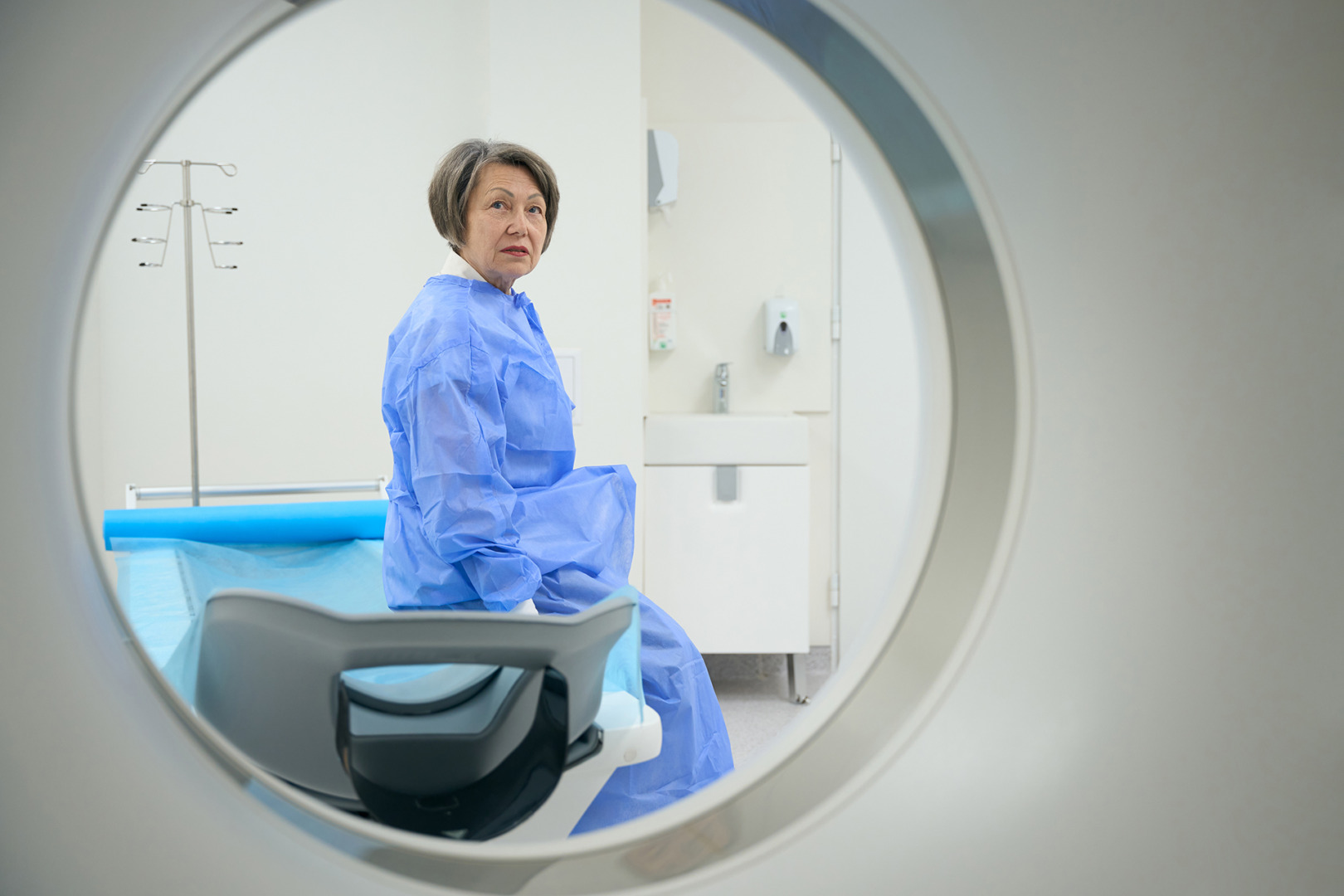
After the scan, you can typically return to your normal activities right away. If contrast dye was used, your doctor may recommend drinking plenty of water to help flush the dye from your system. Your doctor will review the cross-sectional images produced by the CT scan and discuss the results with you, including any next steps if abnormalities are detected during your lung cancer screening.
If you have any questions or concerns about the lung cancer scan, the amount of radiation involved, or the procedure itself, don’t hesitate to speak with your doctor. Understanding what a lung cancer CT scan is and how it works can help you feel more at ease and better prepared. By following the preparation guidelines and communicating openly with your healthcare team, you can help ensure that your lung cancer screening is as effective and stress-free as possible.
A lung check-up may include a physical examination, a discussion of symptoms and risk factors, lung function tests, and imaging studies such as CT scans. The frequency depends on your risk factors: high-risk individuals (e.g. smokers and those with a family history of lung disease) may need annual check-ups, while others may need them less frequently.
Patients who seek treatment at the Neumark Lung & Chest Surgical Centre have access to the expertise of Dr Harish Mithiran, Director and Senior Consultant Thoracic Surgeon at Gleneagles and Mount Alvernia Hospitals in Singapore. To improve patient outcomes, patients benefit from personalised care coordination and groundbreaking minimally invasive treatments using robotic or uniportal video-assisted thoracic surgical modalities.
A low-dose lung CT scan in Singapore costs $400 before GST. For appointments or further information about the screening process, please contact the team at Neumark Lung & Chest Surgery Cent
Insurance may cover the cost of the health lung test screening for most patients who meet the screening criteria. Patients should check with their insurance provider to determine their coverage for this type of surgery (check with your insurance panel list).
A CT scan screening for smokers is a low-dose computed tomography (CT) scan specifically designed to detect early signs of lung cancer in current or former smokers who are at high risk.
A low-dose computed tomography (LDCT) lung cancer screening uses about 90% less radiation than a standard CT scan while still providing detailed images of the lungs.
If contrast material is to be used, you may be asked to remove metal objects and refrain from eating or drinking for a few hours before the scan. The scan typically takes only a few minutes, but the appointment usually lasts around 30 minutes.
DISCLAIMER: The information provided on this website is for general informational purposes only and is not intended as a substitute for professional medical advice, diagnosis, or treatment. The use of this website does not create a doctor-patient relationship and no medical advice should be inferred or assumed. It is the user’s sole responsibility to seek the advice of their healthcare professionals for any medical concerns they may have and the user should not disregard, or delay, prompt medical advice for any such condition.
Read our latest insights on lung diseases and chest conditions, including prevention tactics, treatments, and more.
Gleneagles Medical Centre
6 Napier Road
#02-09 Gleneagles Medical Centre
Singapore 258499
Mount Alvernia Hospital
820 Thomson Road
#06-07 Medical Centre A
Singapore 574623